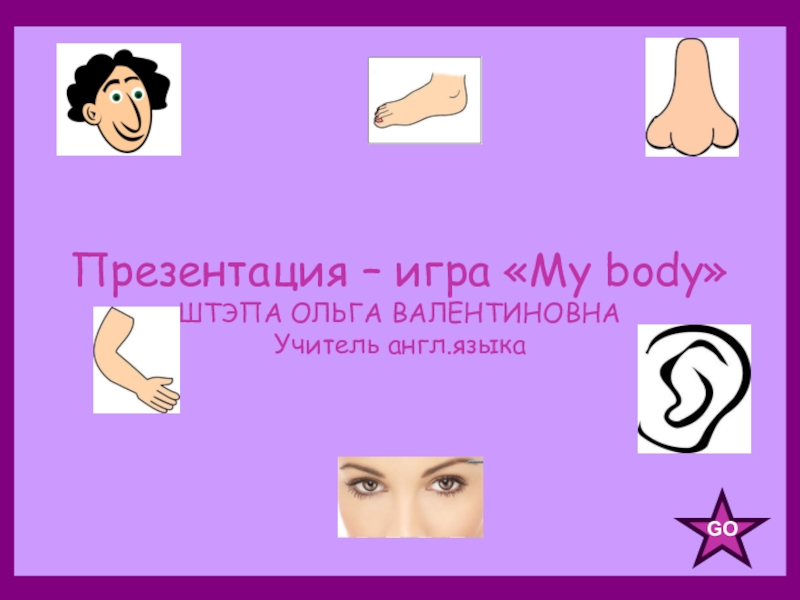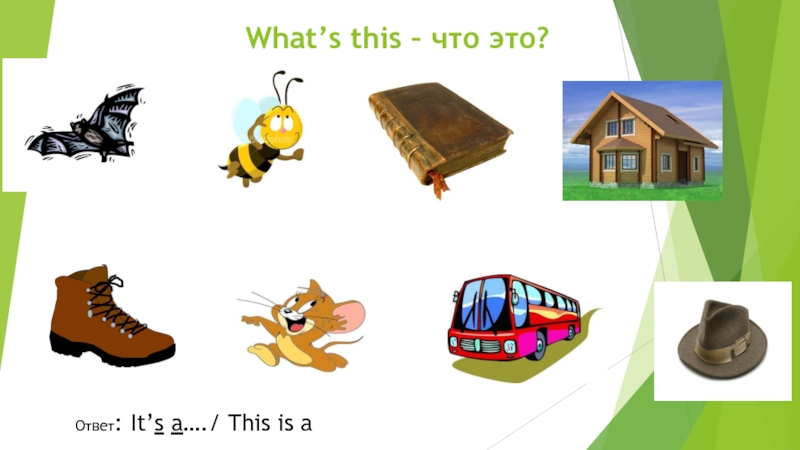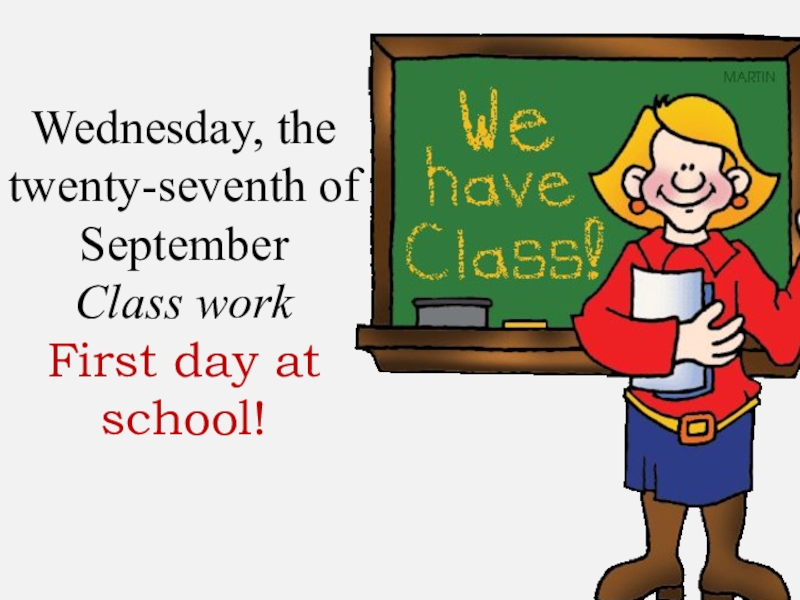МБОУ «ЗСОШ №7 С
УГЛУБЛЕННЫМ ИЗУЧЕНИЕМ ОТДЕЛЬНЫХ ПРЕДМЕТОВ»
- Главная
- Разное
- Образование
- Спорт
- Естествознание
- Природоведение
- Религиоведение
- Французский язык
- Черчение
- Английский язык
- Астрономия
- Алгебра
- Биология
- География
- Геометрия
- Детские презентации
- Информатика
- История
- Литература
- Математика
- Музыка
- МХК
- Немецкий язык
- ОБЖ
- Обществознание
- Окружающий мир
- Педагогика
- Русский язык
- Технология
- Физика
- Философия
- Химия
- Шаблоны, фоны, картинки для презентаций
- Экология
- Экономика
Презентация, доклад на тему План-конспект урока по английскому языку в 9 класса
Содержание
- 1. План-конспект урока по английскому языку в 9 класса
- 2. ТЕМА: EDUCATION IN GREAT BRITAINЦель: активизировать употребление
- 3. ХОД УРОКА The beginning of the lesson-
- 4. PHONETIC TRAINING - Let’s revise the pronunciation
- 5. SPEECH TRAINING - Now, listen to me.
- 6. NEW LANGUAGEComprehensive school – school for all
- 7. THE MAIN PART OF THE LESSON -
- 8. Interviewer: What type of school is it?
- 9. Janice: No, certainly not all.
- 10. Now, let’s do ex 2b. Listen
- 11. 2b AnswersWhat are the exams? – Annual
- 12. Speech practiceLet’s speak about education in
- 13. Reading practice - Do ex 5 page
- 14. Слайд 14
- 15. SCHOOL UNIFORM
- 16. Schools in England
- 17. All the pupils have there
- 18. PHONETIC TRAINING [s] Sue
- 19. NEW LANGUAGEComprehensive school – school for all
- 20. Слайд 20
- 21. SCHOOL UNIFORM
- 22. Schools in England
- 23. All the pupils have there
- 24. Thanks for your attention.GOOD-BYE
ТЕМА: EDUCATION IN GREAT BRITAINЦель: активизировать употребление лексики по теме в устной речи учащихсяЗадачи: 1) научить учащихся вести разговор по теме 2) развивать речевые навыки, навыки аудирование, память, внимание, аналитическое мышление,
Слайд 1ПЛАН-КОНСПЕКТ ОТКРЫТОГО УРОКА В 9 КЛАССЕ ПОДГОТОВИЛА КОРНИЛОВА АЭЛИТА АЛЕКСАНДРОВНА УЧИТЕЛЬ АНГЛИЙСКОГО ЯЗЫКА
Слайд 2ТЕМА: EDUCATION IN GREAT BRITAIN
Цель: активизировать употребление лексики по теме в
устной речи учащихся
Задачи: 1) научить учащихся вести разговор по теме
2) развивать речевые навыки, навыки аудирование, память, внимание, аналитическое мышление, умение быстро реагировать, работать в группе
3) воспитание интереса к изучению английского языка
Оборудование: CD, компьютер, интерактивная доска, карточки
Задачи: 1) научить учащихся вести разговор по теме
2) развивать речевые навыки, навыки аудирование, память, внимание, аналитическое мышление, умение быстро реагировать, работать в группе
3) воспитание интереса к изучению английского языка
Оборудование: CD, компьютер, интерактивная доска, карточки
Слайд 3ХОД УРОКА
The beginning of the lesson
- Good-morning, dears. Get ready for
the lesson.
- How are you? Is everything great?
- OK! Let’s start the lesson.
- Today we'll revise everything we know about education in Great Britain, and continue speaking about.
- Let’s begin.
- How are you? Is everything great?
- OK! Let’s start the lesson.
- Today we'll revise everything we know about education in Great Britain, and continue speaking about.
- Let’s begin.
Слайд 4PHONETIC TRAINING
- Let’s revise the pronunciation of the sound [s]
[s]
Sue is sixteen this summer and Cecil was seventeen last Sunday.
Слайд 5SPEECH TRAINING
- Now, listen to me. I’ll read the sentences
and you are to translate the sentences into Russian, the do back translation.
He must have studied at Cambridge. (Он, должно быть, учился в Кэмбридже).
He can’t have learnt English in Poland. (Не может быть, чтобы он выучил английский в Польше).
Frank must have won the competition. (Должно быть Фрэнк выиграл соревнования).
Oh no, he can’t have been late. (О нет, не может быть, чтобы он опоздал).
Megan must have read the book. (Должно быть, Меган прочитала книгу).
Polly can’t have been the best student in her class. (Не может быть, чтобы Полли была лучшей ученицей в своем классе).
Jack can’t have let them go. (Не может быть, чтобы Джек отпустил их).
The test must have been very difficult. (Должно быть, тест был очень трудным).
He must have studied at Cambridge. (Он, должно быть, учился в Кэмбридже).
He can’t have learnt English in Poland. (Не может быть, чтобы он выучил английский в Польше).
Frank must have won the competition. (Должно быть Фрэнк выиграл соревнования).
Oh no, he can’t have been late. (О нет, не может быть, чтобы он опоздал).
Megan must have read the book. (Должно быть, Меган прочитала книгу).
Polly can’t have been the best student in her class. (Не может быть, чтобы Полли была лучшей ученицей в своем классе).
Jack can’t have let them go. (Не может быть, чтобы Джек отпустил их).
The test must have been very difficult. (Должно быть, тест был очень трудным).
Слайд 6NEW LANGUAGE
Comprehensive school – school for all pupil in Britain between
11-16, or 18
Общеобразовательная школа
Secondary education – education for children between 11-16, or 18
Среднее образование
Primary school – school for children between 5 and 11
Начальная школа
Core subjects – the main subjects at school
Основные предметы
Optional subjects – school subjects that can be chosen if a student wants to
дополнительные предметы
Majority – most of
Большинство
Gown – the black coat worn in the universities
Мантия
Общеобразовательная школа
Secondary education – education for children between 11-16, or 18
Среднее образование
Primary school – school for children between 5 and 11
Начальная школа
Core subjects – the main subjects at school
Основные предметы
Optional subjects – school subjects that can be chosen if a student wants to
дополнительные предметы
Majority – most of
Большинство
Gown – the black coat worn in the universities
Мантия
Слайд 7THE MAIN PART OF THE LESSON
- Now, please, open your
books at page 37 ex 2a. Listen to the interview with a student at a comprehensive school in Britain and say what parts of school life she mentions.
Tapescript
Interviewer: Janice, when did you start school?
Janice: Err, when I was under five… Yes. The year when I turned five.
Interviewer: Oh! So young! You must be have felt quite confused!
Janice: Yes. I was very nervous. I didn’t know anyone! And the others were laughing and…umm…they all looked the same to me.
Interviewer: You probably all wore a uniform?
Janice: Yeah… most schools in Britain have uniforms.
Interviewer: So, that was primary school?
Janice: Yes.
Interviewer: And you went up to the age of…
Janice: Eleven. At the age of eleven, after finishing Year six, children change school. I had to go to Torrington.
Interviewer: Did you get a bus?
Janice: Yeah… the school bus that takes you in every morning…
Tapescript
Interviewer: Janice, when did you start school?
Janice: Err, when I was under five… Yes. The year when I turned five.
Interviewer: Oh! So young! You must be have felt quite confused!
Janice: Yes. I was very nervous. I didn’t know anyone! And the others were laughing and…umm…they all looked the same to me.
Interviewer: You probably all wore a uniform?
Janice: Yeah… most schools in Britain have uniforms.
Interviewer: So, that was primary school?
Janice: Yes.
Interviewer: And you went up to the age of…
Janice: Eleven. At the age of eleven, after finishing Year six, children change school. I had to go to Torrington.
Interviewer: Did you get a bus?
Janice: Yeah… the school bus that takes you in every morning…
Слайд 8Interviewer: What type of school is it?
Janice: It’s a
comprehensive school. I’ll be here from eleven to sixteen.
Interviewer: That’s five years, is it?
Janice: Yes. Year seven to eleven…
Interviewer: Janice, when does the school year begin in Britain?
Janice: Umm… It’s a bit different in different places. In our school we start in the first week in September… Then we have three terms and in summer school closes for about six weeks.
Interviewer: And you have…
Janice: Summer holidays! The best time!
Interviewer: Right. It six weeks enough of a rest studies?
Janice: Yes, but many people think that six weeks is too long and some people want to have four school terms and shorter holidays.
Interviewer: Would you go for that?
Janice: No, I don’t think it’s a clever idea.
Interviewer: What year are you in now?
Janice: Year ten.
Interviewer: What subjects are you taking?
Janice: Um… English… Maths… Computer studies, these are subjects… German, and Russian… and…
Interviewer: Do all students study Russian in Britain?
Interviewer: That’s five years, is it?
Janice: Yes. Year seven to eleven…
Interviewer: Janice, when does the school year begin in Britain?
Janice: Umm… It’s a bit different in different places. In our school we start in the first week in September… Then we have three terms and in summer school closes for about six weeks.
Interviewer: And you have…
Janice: Summer holidays! The best time!
Interviewer: Right. It six weeks enough of a rest studies?
Janice: Yes, but many people think that six weeks is too long and some people want to have four school terms and shorter holidays.
Interviewer: Would you go for that?
Janice: No, I don’t think it’s a clever idea.
Interviewer: What year are you in now?
Janice: Year ten.
Interviewer: What subjects are you taking?
Janice: Um… English… Maths… Computer studies, these are subjects… German, and Russian… and…
Interviewer: Do all students study Russian in Britain?
Слайд 9
Janice: No, certainly not all. It’s an optional subject
in our school.
Interviewer: Why did you choose it?
Janice: Eh… It’s a big country and I would like to learn more about it… but I’m slow progress!
Interviewer: Do you have exams every year?
Janice: We have exams every year… And when you’re sixteen you take a national exam, the GCSE…
Interviewer: What does that mean?
Janice: General Certificate of Secondary Education.
Interviewer: And after that?
Janice: If I don’t fail, I’ll probably go to the College of Further Education in Barnstaple… It is about 15 miles from here.
2a Answers
the school year in British schools
core and optional subjects
what British students wear
at what age they go to comprehensive school
at what age they go to primary school
how they get to school
Interviewer: Why did you choose it?
Janice: Eh… It’s a big country and I would like to learn more about it… but I’m slow progress!
Interviewer: Do you have exams every year?
Janice: We have exams every year… And when you’re sixteen you take a national exam, the GCSE…
Interviewer: What does that mean?
Janice: General Certificate of Secondary Education.
Interviewer: And after that?
Janice: If I don’t fail, I’ll probably go to the College of Further Education in Barnstaple… It is about 15 miles from here.
2a Answers
the school year in British schools
core and optional subjects
what British students wear
at what age they go to comprehensive school
at what age they go to primary school
how they get to school
Слайд 112b Answers
What are the exams? – Annual / Final exams every
year.
What to do after school? – University, college.
Uniform – Yes.
Comprehensive school – Eleven to sixteen.
Primary school – Five to eleven.
Core subjects – English, Maths.
Optional subjects – Russian.
Number of terms – Three.
Beginning of the school year – September.
How do you get to school? – With the school bus.
What to do after school? – University, college.
Uniform – Yes.
Comprehensive school – Eleven to sixteen.
Primary school – Five to eleven.
Core subjects – English, Maths.
Optional subjects – Russian.
Number of terms – Three.
Beginning of the school year – September.
How do you get to school? – With the school bus.
Слайд 12 Speech practice
Let’s speak about education in Tatarstan and in our
school. Please answer my questions.
When do you start your school?
How many forms do you have?
When do you begin your school year?
Number of terms?
Do you have a uniform?
What core subjects do you have?
What about optional subjects?
What exams do you have?
What do you do after school?
Thank you very much for your answers.
When do you start your school?
How many forms do you have?
When do you begin your school year?
Number of terms?
Do you have a uniform?
What core subjects do you have?
What about optional subjects?
What exams do you have?
What do you do after school?
Thank you very much for your answers.
Слайд 13Reading practice
- Do ex 5 page 47. read the text
about exam strategies that Cleo, a former school student, used and say whether the following statements are true, false or information is not given.
Cleo thinks that special lessons helped her more than individual work. (NG)
She produced special materials that helped her learn. (T)
Cleo tried to deal with easier subjects before dealing with more difficult ones. (F)
Cleo enjoyed preparing for exams with her fellow students. (T)
In revision lessons students had a chance to learn important new material. (NG)
In revision lessons the teacher gave the students tasks similar to exam activities and they had do them at home. (F)
Cleo passed her exams successfully. (T)
- Thank you, very good.
Cleo thinks that special lessons helped her more than individual work. (NG)
She produced special materials that helped her learn. (T)
Cleo tried to deal with easier subjects before dealing with more difficult ones. (F)
Cleo enjoyed preparing for exams with her fellow students. (T)
In revision lessons students had a chance to learn important new material. (NG)
In revision lessons the teacher gave the students tasks similar to exam activities and they had do them at home. (F)
Cleo passed her exams successfully. (T)
- Thank you, very good.
Слайд 14
The school year in Britain starts
in September.
The lessons last 40-45 minutes.
British pupils wear a school uniform. The favourite colors are blue, grey, black and green.
The first foreign language they learn at school is French. Sometimes they also learn a second foreign language: German, Spanish, Russian.
British students have Christmas holidays, Easter holidays and Summer holidays. Schools also have special half-term holidays in the middle of each term. These holidays last 2-3 days before or after a weekend.
Слайд 16 Schools in England and America use their
own marks: letters or percentage
A – 90-100 -excellent ,
B – 80-89 – good,
C – 70-79 – satisfactory,
D – 60-69 bad,
E – 0-59 poor.
A – 90-100 -excellent ,
B – 80-89 – good,
C – 70-79 – satisfactory,
D – 60-69 bad,
E – 0-59 poor.
Marks
Слайд 17 All the pupils have there own lockers (запирающийся шкафчик).
In most British schools each pupils has two lockers: a gym locker and a hall locker. The lockers are important and guarantee the safety of the pupils’ belongings.
Слайд 19NEW LANGUAGE
Comprehensive school – school for all pupil in Britain between
11-16, or 18
Secondary education – education for children between 11-16, or 18
Primary school – school for children between 5 and 11
Core subjects – the main subjects at school
Optional subjects – school subjects that can be chosen if a student wants to
Majority – most of
Gown – the black coat worn in the universities
Secondary education – education for children between 11-16, or 18
Primary school – school for children between 5 and 11
Core subjects – the main subjects at school
Optional subjects – school subjects that can be chosen if a student wants to
Majority – most of
Gown – the black coat worn in the universities
Слайд 20
The school year in Britain starts
in September.
The lessons last 40-45 minutes.
British pupils wear a school uniform. The favourite colors are blue, grey, black and green.
The first foreign language they learn at school is French. Sometimes they also learn a second foreign language: German, Spanish, Russian.
British students have Christmas holidays, Easter holidays and Summer holidays. Schools also have special half-term holidays in the middle of each term. These holidays last 2-3 days before or after a weekend.
Слайд 22 Schools in England and America use their
own marks: letters or percentage
A – 90-100 -excellent ,
B – 80-89 – good,
C – 70-79 – satisfactory,
D – 60-69 bad,
E – 0-59 poor.
A – 90-100 -excellent ,
B – 80-89 – good,
C – 70-79 – satisfactory,
D – 60-69 bad,
E – 0-59 poor.
Marks
Слайд 23 All the pupils have there own lockers (запирающийся шкафчик).
In most British schools each pupils has two lockers: a gym locker and a hall locker. The lockers are important and guarantee the safety of the pupils’ belongings.



![План-конспект урока по английскому языку в 9 класса PHONETIC TRAINING - Let’s revise the pronunciation of the sound [s] PHONETIC TRAINING - Let’s revise the pronunciation of the sound [s] [s] Sue is sixteen](/img/tmb/1/80570/e6fc405dcf4d92c860d0d0faaf17ac87-800x.jpg)













![План-конспект урока по английскому языку в 9 класса PHONETIC TRAINING [s] Sue is sixteen this summer and Cecil PHONETIC TRAINING [s] Sue is sixteen this summer and Cecil was seventeen last Sunday.](/img/tmb/1/80570/b80b597d82e76bd095b73cc164b75ad5-800x.jpg)











